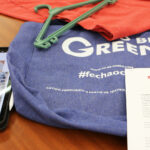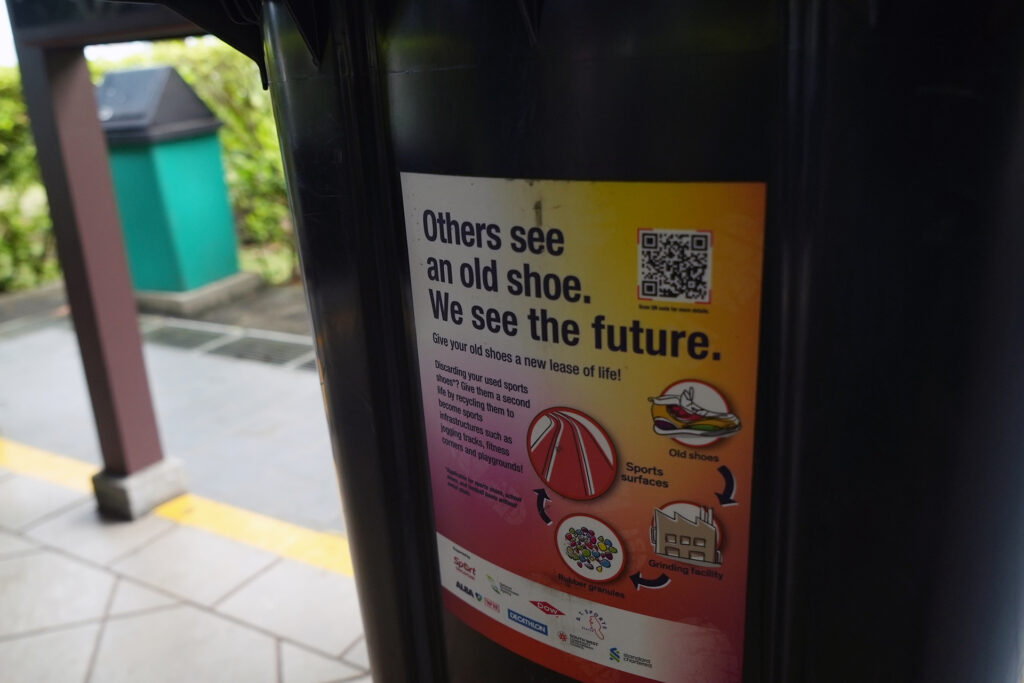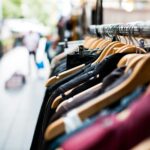
At El Corte Inglés, used clothes get a new life
El Corte Inglés and To Be Green, a spin-off from the University of Minho, have joined forces inan unprecedented partnership, to produce 300 new articles
We didn't find any happenings mapped to your criteria.
Try the traditional search to find articles not yet mapped with RUA.
We didn't find any happenings mapped to your criteria.
Try the traditional search to find articles not yet mapped with RUA.
We didn't find any happenings mapped to your criteria.
Try the traditional search to find articles not yet mapped with RUA.
We didn't find any happenings mapped to your criteria.
Try the traditional search to find articles not yet mapped with RUA.
For a report, Reuters tracked down eleven pairs of shoes, which were eventually found far from any Singapore recycling plant, as was promised.
The American multinational company Dow Inc – and one of the world’s largest petrochemical producers – and the Singapore government have promised to collect and transform old sneakers into spongy material to build playgrounds and
race tracks, but in fact, none of this happened.
The discovery comes from the Reuters research team, which hid tracking devices in 11 pairs of donated shoes that never made it to a local recycling center.
According to press releases and a promotional video posted online, the recycling program consisted of grinding rubber soles and midsoles and would prevent 170,000 pairs of shoes from ending up in landfills annually. Under the slogan “Others see an old shoe. We see the future,” Singapore residents were encouraged to leave their shoes in containers, available in parks, community centers, schools, and outlets of Decathlon, the project sponsor.
According to Dow’s statements to Reuters in January, the project is making progress, with the construction of a sports facility in Jurong and a soccer complex in Singapore using 10,000 kg of recycled material to build the surfaces. However, the news agency was unable to verify the facts, as both complexes are under construction and isolated from the public. Initially, 10 pairs donated by Reuters were exported from the
recycling to the warehouse of Yok Impex, a textile exporter located in Singapore. From there, they traveled by sea to the Indonesian island of Batam. The 11th pair was last detected in a residential neighborhood in Singapore.
Some shoes were found at a flea market that supplies low-income buyers, others ended up in areas too remote to locate in person, and three pairs stopped sending a signal after arriving in Indonesia.
After being confronted with Reuters’ findings in early 2023, Dow said it had opened an investigation together with Sport Singapore, a state agency, and other sponsors of the program – Decathlon, the bank
Standard Chartered, the local waste management company ALBA W&H Smart City Pte. Ltd and a company responsible for shredding the donated footwear at a local facility.
At the end of the investigation, it was concluded that Yok Impex would be removed from the project, without explaining its initial involvement.

Although the Reuters sample is small, the fact that none of the shoes made it to a recycling facility in Singapore “highlights the weaknesses of the
system,” as they write in the report. Environmental groups classify the claims about recycling from chemical companies like Dow as exaggerated or false, used in an attempt to convey to the public a false sense of security about the environmental impact of increased consumerism.
Dow’s failed recycling efforts had already happened in the past, in
projects also investigated by Reuters. In 2021, a program in Idaho aimed at using innovative technology to turn plastic waste into clean fuel was actually burning plastic waste to power a cement plant.
In the same year, a Dow-supported project in India was supposed to collect plastic from the Ganges River and use technology to turn the waste into clean fuel – however, the project was shut down following regular equipment breakdowns.
The donated shoes, which eventually arrived in Indonesia, have joined a flood of illegal second-hand clothing. Since 2015, the import of
used clothing and footwear is banned in the country because of its consequences for hygiene and the spread of disease, and because of the need to protect the local textile industry. However, this market is worth millions of dollars a year and the only action
taken by the Ministry of Commerce so far has been the revocation of import licenses and the seizure and destruction of used clothing.

El Corte Inglés and To Be Green, a spin-off from the University of Minho, have joined forces inan unprecedented partnership, to produce 300 new articles

In California, clothing and fabric producers will have to take responsibility for the entire life cycle of their items, thanks to new legislation. New legislation

Although mechanical recycling is the most widely used method, it cannot deal with multi-fiber textiles. The new approach promises to effectively recycle this waste, and
Esta publicação também está disponível em:
![]() Português (Portuguese (Portugal))
Português (Portuguese (Portugal))

